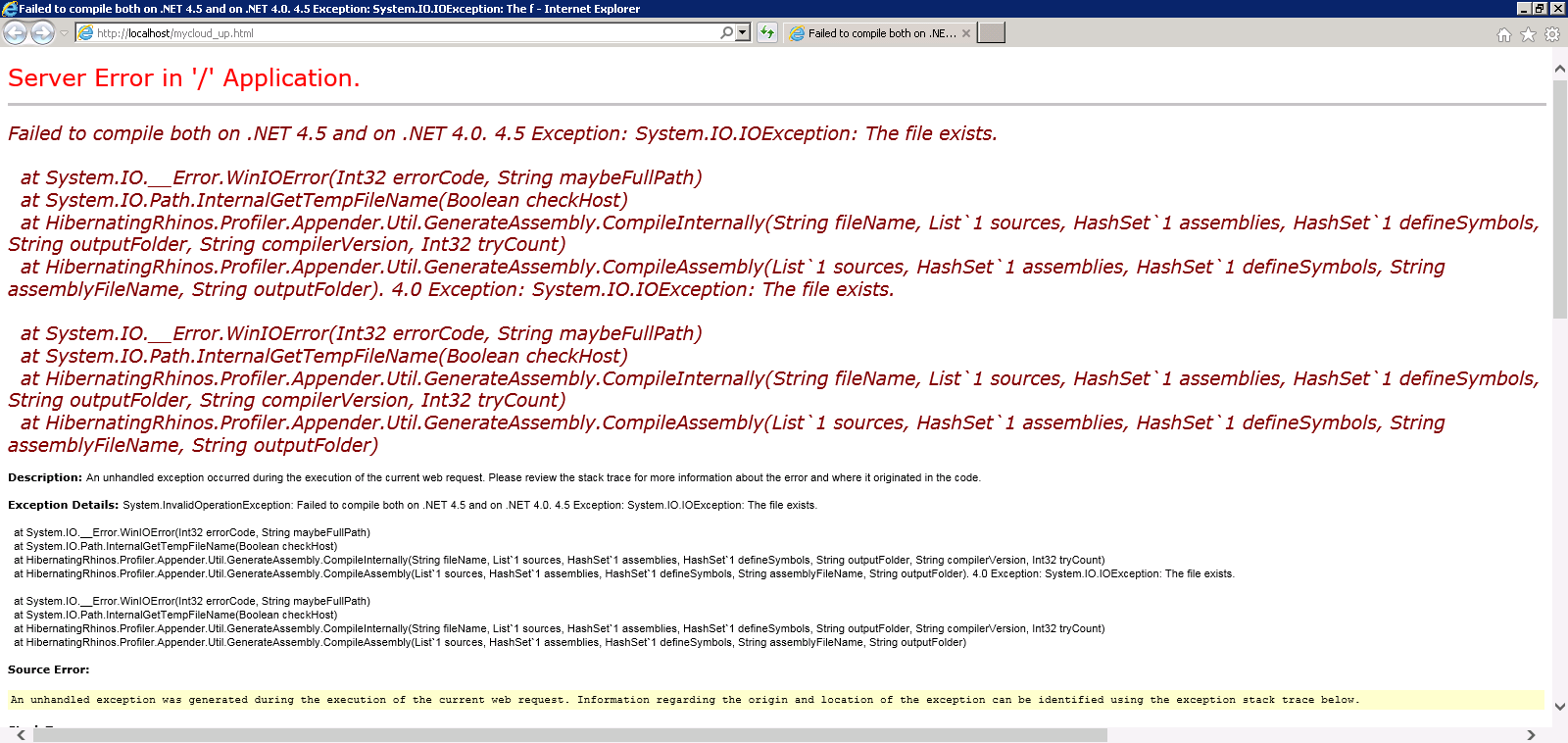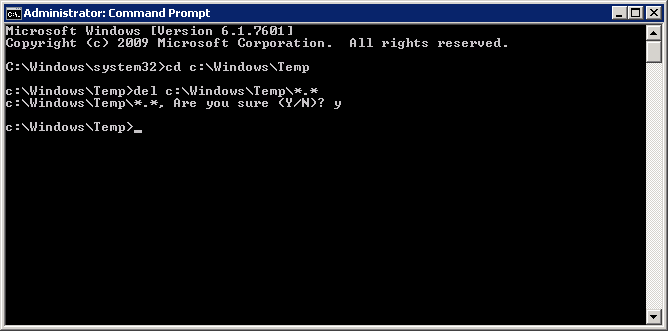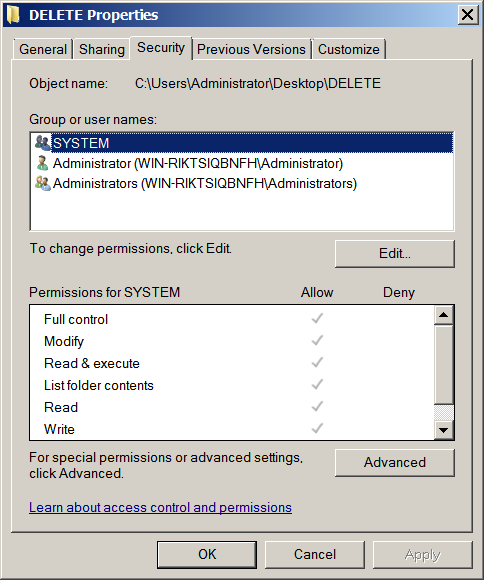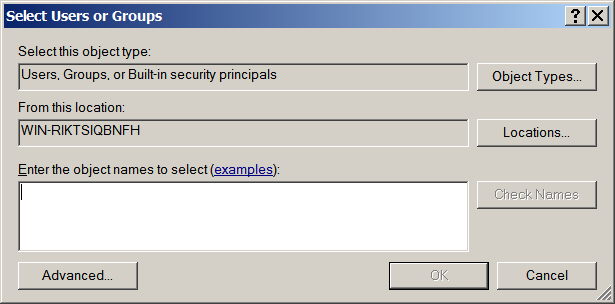Today I had a weird issue with a Microsoft IIS web-server. The latest .NET Framework was correctly installed and registered on the server, but when I put my .NET code in the web directory and browsed to it from a remote browser I got the standard .NET error page. I would get the error regardless of whether I was trying to access a page served by .NET or a basic HTML page hosted on the server. I confirmed that IIS was working correctly by removing all files (including the web.config file) from the web-directory and putting in a basic test HTML page on its own. The test page rendered correctly from a remote browser.
Having put the .NET code back in, I browsed to a .NET URL locally on the web-server in order to get a full view of the error message. The rather strange error was as follows:
In order to help people find this page in search engines, the full text was as follows:
Server Error in '/' Application. Failed to compile both on .NET 4.5 and on .NET 4.0. 4.5 Exception: System.IO.IOException: The file exists. at System.IO.__Error.WinIOError(Int32 errorCode, String maybeFullPath) at System.IO.Path.InternalGetTempFileName(Boolean checkHost) at HibernatingRhinos.Profiler.Appender.Util.GenerateAssembly.CompileInternally(String fileName, List`1 sources, HashSet`1 assemblies, HashSet`1 defineSymbols, String outputFolder, String compilerVersion, Int32 tryCount) at HibernatingRhinos.Profiler.Appender.Util.GenerateAssembly.CompileAssembly(List`1 sources, HashSet`1 assemblies, HashSet`1 defineSymbols, String assemblyFileName, String outputFolder). 4.0 Exception: System.IO.IOException: The file exists. at System.IO.__Error.WinIOError(Int32 errorCode, String maybeFullPath) at System.IO.Path.InternalGetTempFileName(Boolean checkHost) at HibernatingRhinos.Profiler.Appender.Util.GenerateAssembly.CompileInternally(String fileName, List`1 sources, HashSet`1 assemblies, HashSet`1 defineSymbols, String outputFolder, String compilerVersion, Int32 tryCount) at HibernatingRhinos.Profiler.Appender.Util.GenerateAssembly.CompileAssembly(List`1 sources, HashSet`1 assemblies, HashSet`1 defineSymbols, String assemblyFileName, String outputFolder) Description: An unhandled exception occurred during the execution of the current web request. Please review the stack trace for more information about the error and where it originated in the code. Exception Details: System.InvalidOperationException: Failed to compile both on .NET 4.5 and on .NET 4.0. 4.5 Exception: System.IO.IOException: The file exists. at System.IO.__Error.WinIOError(Int32 errorCode, String maybeFullPath) at System.IO.Path.InternalGetTempFileName(Boolean checkHost) at HibernatingRhinos.Profiler.Appender.Util.GenerateAssembly.CompileInternally(String fileName, List`1 sources, HashSet`1 assemblies, HashSet`1 defineSymbols, String outputFolder, String compilerVersion, Int32 tryCount) at HibernatingRhinos.Profiler.Appender.Util.GenerateAssembly.CompileAssembly(List`1 sources, HashSet`1 assemblies, HashSet`1 defineSymbols, String assemblyFileName, String outputFolder). 4.0 Exception: System.IO.IOException: The file exists. at System.IO.__Error.WinIOError(Int32 errorCode, String maybeFullPath) at System.IO.Path.InternalGetTempFileName(Boolean checkHost) at HibernatingRhinos.Profiler.Appender.Util.GenerateAssembly.CompileInternally(String fileName, List`1 sources, HashSet`1 assemblies, HashSet`1 defineSymbols, String outputFolder, String compilerVersion, Int32 tryCount) at HibernatingRhinos.Profiler.Appender.Util.GenerateAssembly.CompileAssembly(List`1 sources, HashSet`1 assemblies, HashSet`1 defineSymbols, String assemblyFileName, String outputFolder) Source Error: An unhandled exception was generated during the execution of the current web request. Information regarding the origin and location of the exception can be identified using the exception stack trace below. Stack Trace: [InvalidOperationException: Failed to compile both on .NET 4.5 and on .NET 4.0. 4.5 Exception: System.IO.IOException: The file exists. at System.IO.__Error.WinIOError(Int32 errorCode, String maybeFullPath) at System.IO.Path.InternalGetTempFileName(Boolean checkHost) at HibernatingRhinos.Profiler.Appender.Util.GenerateAssembly.CompileInternally(String fileName, List`1 sources, HashSet`1 assemblies, HashSet`1 defineSymbols, String outputFolder, String compilerVersion, Int32 tryCount) at HibernatingRhinos.Profiler.Appender.Util.GenerateAssembly.CompileAssembly(List`1 sources, HashSet`1 assemblies, HashSet`1 defineSymbols, String assemblyFileName, String outputFolder). 4.0 Exception: System.IO.IOException: The file exists. at System.IO.__Error.WinIOError(Int32 errorCode, String maybeFullPath) at System.IO.Path.InternalGetTempFileName(Boolean checkHost) at HibernatingRhinos.Profiler.Appender.Util.GenerateAssembly.CompileInternally(String fileName, List`1 sources, HashSet`1 assemblies, HashSet`1 defineSymbols, String outputFolder, String compilerVersion, Int32 tryCount) at HibernatingRhinos.Profiler.Appender.Util.GenerateAssembly.CompileAssembly(List`1 sources, HashSet`1 assemblies, HashSet`1 defineSymbols, String assemblyFileName, String outputFolder)] HibernatingRhinos.Profiler.Appender.Util.GenerateAssembly.CompileAssembly(List`1 sources, HashSet`1 assemblies, HashSet`1 defineSymbols, String assemblyFileName, String outputFolder) +712 [InvalidOperationException: System.InvalidOperationException: Failed to compile both on .NET 4.5 and on .NET 4.0. 4.5 Exception: System.IO.IOException: The file exists. at System.IO.__Error.WinIOError(Int32 errorCode, String maybeFullPath) at System.IO.Path.InternalGetTempFileName(Boolean checkHost) at HibernatingRhinos.Profiler.Appender.Util.GenerateAssembly.CompileInternally(String fileName, List`1 sources, HashSet`1 assemblies, HashSet`1 defineSymbols, String outputFolder, String compilerVersion, Int32 tryCount) at HibernatingRhinos.Profiler.Appender.Util.GenerateAssembly.CompileAssembly(List`1 sources, HashSet`1 assemblies, HashSet`1 defineSymbols, String assemblyFileName, String outputFolder). 4.0 Exception: System.IO.IOException: The file exists. at System.IO.__Error.WinIOError(Int32 errorCode, String maybeFullPath) at System.IO.Path.InternalGetTempFileName(Boolean checkHost) at HibernatingRhinos.Profiler.Appender.Util.GenerateAssembly.CompileInternally(String fileName, List`1 sources, HashSet`1 assemblies, HashSet`1 defineSymbols, String outputFolder, String compilerVersion, Int32 tryCount) at HibernatingRhinos.Profiler.Appender.Util.GenerateAssembly.CompileAssembly(List`1 sources, HashSet`1 assemblies, HashSet`1 defineSymbols, String assemblyFileName, String outputFolder) at HibernatingRhinos.Profiler.Appender.Util.GenerateAssembly.CompileAssembly(List`1 sources, HashSet`1 assemblies, HashSet`1 defineSymbols, String assemblyFileName, String outputFolder) ImageRuntimeVersion: v4.0.30319] HibernatingRhinos.Profiler.Appender.Util.GenerateAssembly.CompileAssembly(List`1 sources, HashSet`1 assemblies, HashSet`1 defineSymbols, String assemblyFileName, String outputFolder) +1042 HibernatingRhinos.Profiler.Appender.NHibernate.NHibernateProfiler.RegisterAppenderUsingNHibernateLogger() +314 HibernatingRhinos.Profiler.Appender.NHibernate.NHibernateProfiler.Initialize(NHibernateAppenderConfiguration configuration) +53 XXXXX.App_Start.NHibernateProfilerBootstrapper.PreStart() in c:\TeamCity\buildAgent\work\XXXXX\App_Start\NHibernateProfilerBootstrapper.cs:18 [TargetInvocationException: Exception has been thrown by the target of an invocation.] System.RuntimeMethodHandle.InvokeMethod(Object target, Object[] arguments, Signature sig, Boolean constructor) +0 System.Reflection.RuntimeMethodInfo.UnsafeInvokeInternal(Object obj, Object[] parameters, Object[] arguments) +260 System.Reflection.RuntimeMethodInfo.Invoke(Object obj, BindingFlags invokeAttr, Binder binder, Object[] parameters, CultureInfo culture) +146 System.Reflection.MethodBase.Invoke(Object obj, Object[] parameters) +34 WebActivator.BaseActivationMethodAttribute.InvokeMethod() +288 WebActivator.ActivationManager.RunActivationMethods() +698 WebActivator.ActivationManager.RunPreStartMethods() +46 WebActivator.ActivationManager.Run() +68 [InvalidOperationException: The pre-application start initialization method Run on type WebActivator.ActivationManager threw an exception with the following error message: Exception has been thrown by the target of an invocation..] System.Web.Compilation.BuildManager.InvokePreStartInitMethodsCore(ICollection`1 methods, Func`1 setHostingEnvironmentCultures) +874 System.Web.Compilation.BuildManager.InvokePreStartInitMethods(ICollection`1 methods) +169 System.Web.Compilation.BuildManager.CallPreStartInitMethods(String preStartInitListPath, Boolean& isRefAssemblyLoaded) +166 System.Web.Compilation.BuildManager.ExecutePreAppStart() +176 System.Web.Hosting.HostingEnvironment.Initialize(ApplicationManager appManager, IApplicationHost appHost, IConfigMapPathFactory configMapPathFactory, HostingEnvironmentParameters hostingParameters, PolicyLevel policyLevel, Exception appDomainCreationException) +882 [HttpException (0x80004005): The pre-application start initialization method Run on type WebActivator.ActivationManager threw an exception with the following error message: Exception has been thrown by the target of an invocation..] System.Web.HttpRuntime.FirstRequestInit(HttpContext context) +579 System.Web.HttpRuntime.EnsureFirstRequestInit(HttpContext context) +112 System.Web.HttpRuntime.ProcessRequestNotificationPrivate(IIS7WorkerRequest wr, HttpContext context) +716 Version Information: Microsoft .NET Framework Version:4.0.30319; ASP.NET Version:4.6.1055.0
I found this article on stack overflow which helped me to solve the problem. The answer was simply to clear down the %TEMP% folder, which for me was C:\windows\temp. Apparently, if there are more than 65,535 files in there .NET is not able to serve web-pages through IIS. There were hundreds of thousands of files in the folder so I couldn’t even browse to it using Windows Explorer. It ended up being a command prompt job:
Microsoft Windows [Version 6.1.7601] Copyright (c) 2009 Microsoft Corporation. All rights reserved. C:\Windows\system32>cd c:\Windows\Temp c:\Windows\Temp>del c:\Windows\Temp\*.* c:\Windows\Temp\*.*, Are you sure (Y/N)? y
That fixed the problem.




